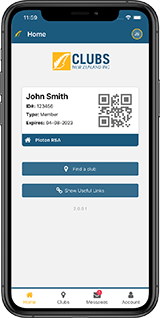Dealing with false or misleading vaccine information in your workplace
17 June 2021
Not everything online is factual and accurate. We can quickly and subconsciously accept news that aligns with our beliefs and negatively react to information that is different. It’s important to take time and reflect when you read something about the COVID-19 vaccine, before acting.
Social media companies typically use algorithms to pick up false and misleading information. You may have seen a flag or small message on certain posts advising that the information is related to COVID-19 and will link you to a trusted source. These aren’t 100% fool proof. It’s important to remain vigilant with the information you share or post online. Always cross-check and review anything online regarding the vaccine by using the reliable sources listed below.
If you need to communicate with your employees about the vaccine rollout, CERT NZ provides guidance for appropriate ways workplaces can do this.
Technical guidance about COVID-19 vaccine communications in the workplace(external link) – CERT NZ
Get the facts
Accurate and reliable information regarding the COVID-19 vaccine rollout in Aotearoa can be found here:
Ministry of Health(external link)
Unite Against COVID-19(external link)
Local District Health Boards (DHBs )(external link)
Your GP, pharmacist or health professional.
Report it
Any false or misleading information such as leaflets, publications or websites can be reported to CERT NZ, either online or by calling 0800 2378 69.
Report COVID-19 vaccine scams or misinformation(external link) – CERT NZ
You can report what you believe to be false or misleading information seen on social media to the respective social media platform eg Facebook, Twitter etc. These platforms will have buttons or forms in which you can report this information.
The different kinds of false and misleading information
- Misinformation – false information but not created with the intention of causing harm (eg misleading vaccine information shared with good intent).
- Disinformation – false information and deliberately created to harm (eg ideologies and theories purposely giving misleading or dated vaccine information).
- Malinformation – information based on reality that’s used to inflict harm on a person, organisation or country (eg leaks of private information that has been deliberately changed).
- Scams – based on reality, but aiming to extort information and/or money (eg advertising advising of early access to vaccination for a fee).
Discussing false and misleading information with others
You may know someone or a group of people who are spreading false and misleading information within your workplace, communities or online.
It’s important to remember that this person or group of people feel that the information they are spreading is true.
Here are some tips on how you can talk to them:
- Check if the information is false. You can do this by going to reliable sources mentioned above to check the facts.
- Acknowledge their concerns and fears. Don’t mock them for having fears or concerns.
- Decide if it’s best to engage with them directly. It may be best to send them a message or talk to them privately about what they have said. If they have posted on social media and are getting a lot of interest you may want to report to the platform. You have the option to remain anonymous.
- Avoid escalating the situation. Try to find areas you can both agree on. If the person you are engaging with gets defensive and you feel that it is no longer constructive, they may become more resistant to factual information.
- Share accurate resources. If we share accurate, verified information we will encourage others too.
Continue to listen to their concerns and fears. Reinforce factual information.
(SOURCE: www.business.govt.nz)

